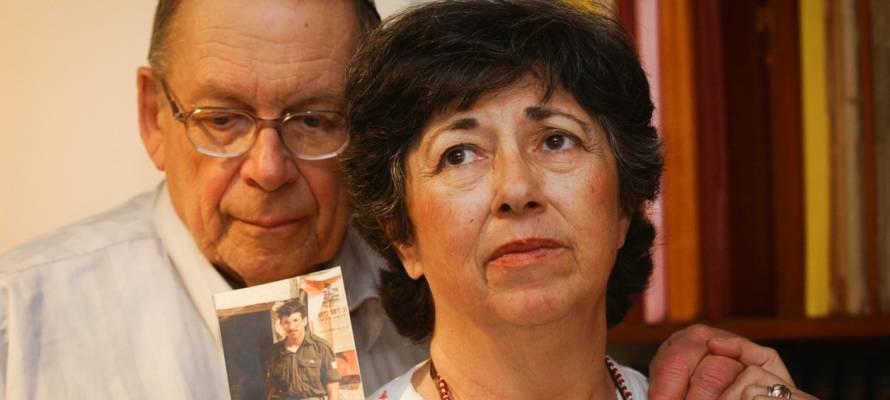An anecdote related to the recent return of the remains of a soldier who went missing in battle over three decades ago exposes the depth of Israel’s dedication to its fallen soldiers.
Every year in honor of Yom Hazikaron, Israeli Memorial Day for Fallen Soldiers, I highlight a fallen soldier who was recently in the news. This year, I would like to honor a soldier that fell decades ago, but who has recently been in the spotlight.
Zechariah Baumel was an American-born Israeli soldier in the Israel Defense Forces. He was born on November 17, 1960, in Brooklyn, New York, and was the youngest of three children. The Baumel family immigrated to Israel, settling in the Kiryat Motzkin neighborhood of Haifa.
After high school, Zachariah enrolled in the hesder program at Yeshivat Har Etzion south of Jerusalem. The hesder yeshiva programs are programs in which religious soldiers can combine yeshiva studies with army service.
On June 11, 1982, during the Battle of Sultan Yacoub in the 1982 Lebanon War, Zachariah’s unit was attacked and he and five other soldiers were declared missing. One had been killed and was later found buried in Syria, and two were located alive in Syria and returned to Israel a few years later.
But Baumel, Yehuda Katz, and Zvi Feldman remained unaccounted for. Until his death in 2009, Baumel’s father, Yona, kept his son’s case in the public eye, traveling around the world to uncover leads and investigate persistent rumors that his son was still alive.
On April 3, 2019, Russian President Vladimir Putin announced that the Russian army, in coordination with the Syrian military, had found Baumel’s remains. The operation, code-named “Bittersweet Song” was the result of a two-year cooperative effort between Israel and Russia to return bodies of missing Israeli soldiers buried in Syrian territory formerly controlled by ISIS.
Baumel’s remains were handed over to Israeli Prime Minister Benjamin Netanyahu in an official ceremony at the Russian defense ministry in Moscow on April 3 and interred the following day at the Mount Herzl military cemetery in Jerusalem in the presence of Prime Minister Netanyahu and Israeli President Reuven Rivlin. Thousands attended the nighttime funeral.
There is a story circulating about what led up to Prime Minister Netanyahu asking Vladimir Putin to assist in recovering Baumel’s remains. According to some, Putin told Netanyahu at a recent meeting, “You did an enormous favor for me, and now it is payback time. Whatever you wish.” (The “enormous favor” that Israel did for Russia to which Putin referred remains unknown.)
Netanyahu was expecting this, and his staff prepared a list of 50 favors to ask, eventually knocking the list down to 10 and then to the three most important. Suddenly, despite having the three “most important” favors in his head, the prime minister began thinking of Baumel.
While he was uncertain why Baumel popped into his head at such a time, he decided it was “a sign” and asked Putin to help bring home the remains for burial in Israel, and so it was.
Putin was so amazed that Netanyahu used this opportunity for a major favor to ease the pain and suffering of a family that he stated that this “favor” doesn’t count, and he was willing to do three additional favors for Israel as pay back for the original favor done for him.










